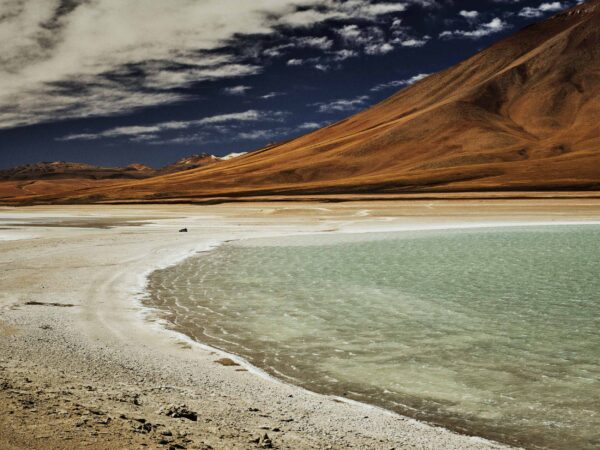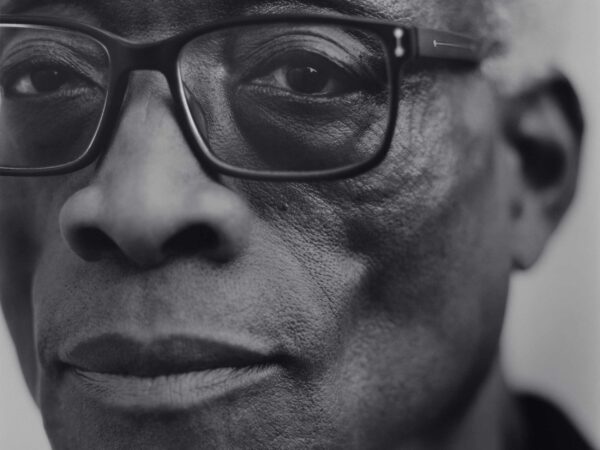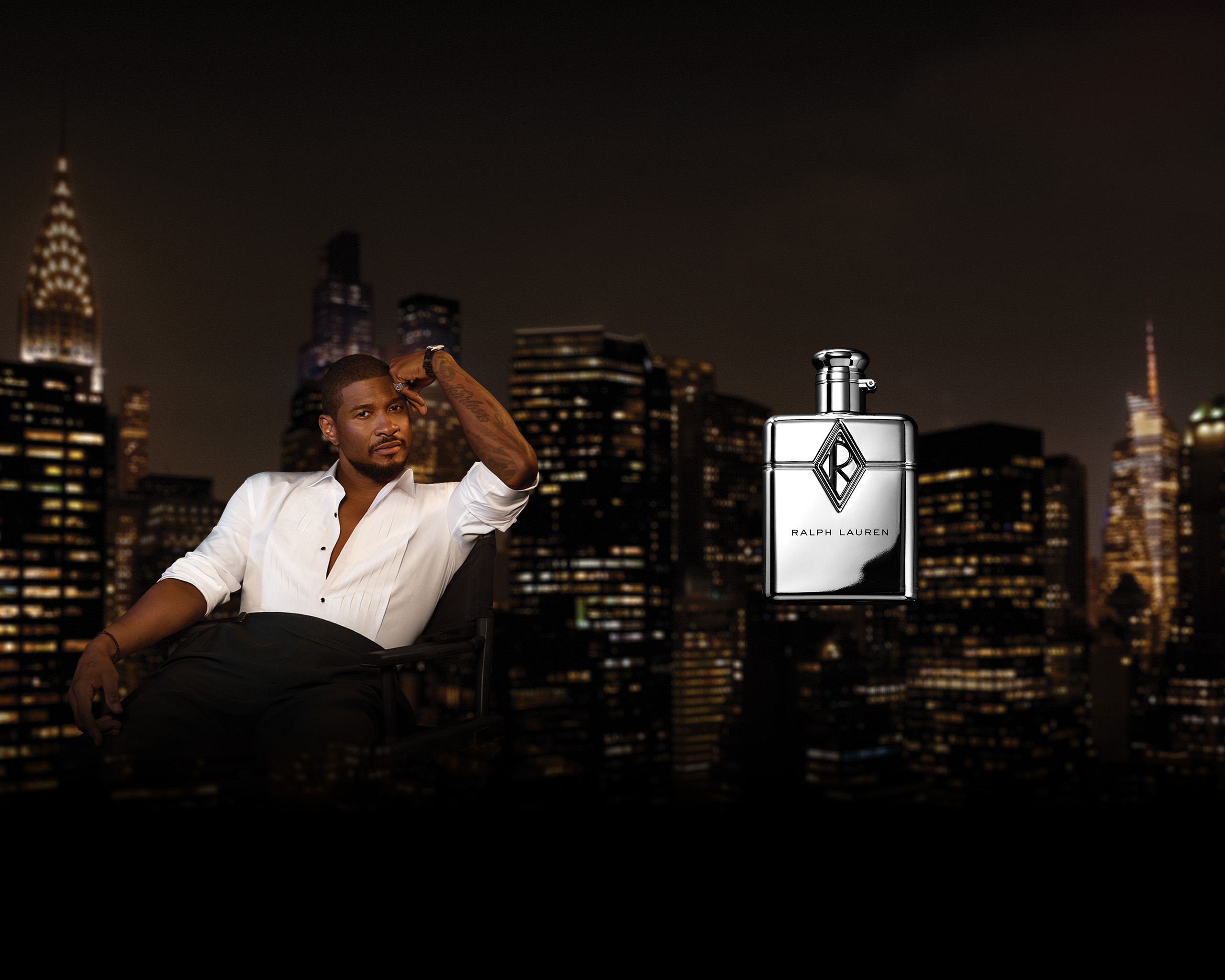
For Document’s Spring/Summer 2024 issue, the activist, model, and jewelry designer opens up about the twists and turns of her career and the political power of influence
Mia Khalifa has a pretty peaceful life. In the morning, she grabs coffee at her local shop (Panther) and breakfast around the corner (El Bagel). Then, she likes to spend afternoons with her friend Jonathan in his Miami studio, or designing body jewelry for her new line, Sheytan. Often, she’s home by early evening, with enough time to watch a movie or two: “I’ll take my melatonin by 10pm, and I’m in bed by 11:30.” Life is good, she says—but it hasn’t always been this way.
Nine years ago, Khalifa was 22 years old and had just gone viral for wearing a hijab in an adult film—becoming, overnight, one of the most-searched names on Pornhub and the center of global controversy. Suddenly, her face was plastered all over the news. ISIS was sending her death threats. Strange men leered at her on the street. The film, which was released in January 2015, quickly racked up millions of views, catapulting her into the public eye and completely upending her life. In a recent journal entry reflecting on her past, the occasion is marked with the simple, devastating phrase: “News breaks.”
In the entry, Khalifa summarized the ensuing months in similarly frank missives: In March, she quit porn (underlined twice). A month later, she was still in denial about the impact the film would have on her life. By May, she got a job as a paralegal, hoping to dodge recognition. Come June, she was living on her own for the first time in a cockroach-infested efficiency; she had no friends or family to lean on, and only a toxic relationship to turn to. By July, she was spinning out: “Losing myself to make [redacted] happy,” read her handwritten notes. “Spending more time with him and less on myself,” she continued through the year. “First heartbreak.” “Lost myself more.”
In the near-decade since, Khalifa has found herself—not once, but many times over. She’s a successful influencer, model, activist, and creative multihyphenate with a following of millions, and has used her platform to speak out about social issues, from human rights violations in India to governmental corruption in her home country of Lebanon. She even raised over $100,000 for victims of the 2020 explosion in Beirut by auctioning off the signature glasses worn in her erotic films—promoted in a TikTok video that sees her strike alluring poses before swiftly switching gears: “Now that the algorithm thinks that this is for white TikTok, I just want to let you guys know that there is a humanitarian crisis in Lebanon right now.”
When Khalifa and I connect over Zoom for the first time, it’s September 2023, and she’s curled up in front of a fireplace in the English countryside. She just walked in her first runway show for KNWLS the day before—both a lifelong dream and a natural progression as her star rises in the fashion industry. In addition to launching her own brand, she has been featured in campaigns for Heaven by Marc Jacobs and collaborated on a zine with the streetwear line Aries; its founder and creative director, Sofia Prantera, knew Khalifa embodied the spirit of the brand from the moment they met: “She is strong but extremely humble, and under her glossy appearance there is a tough young girl who has had to fight her way through so much adversity.”
Since quitting porn, Khalifa has advocated against the exploitative contracts common in the industry. Though her brief, wildly viral stint as an adult-film actress has earned hundreds of thousands of dollars for Pornhub, as well as BangBros—the company that produced the video and allegedly pressured her into donning the hijab—she pocketed only $12,000 in profits, having been shut out of royalties. Years later, Khalifa remains among the top-searched names on Pornhub—accruing millions of views and continuing to rake in money for companies eager to capitalize on the moment of her life she’d most like to forget. Against all odds, Khalifa isn’t bitter. “One of the things that I get asked the most is, ‘Do you regret X, Y, or Z?’” she says. “And my answer changes on a daily basis. I’m really interested in the butterfly effect, and sometimes I do wish I could tune into a channel and see what that other life would be like—but at the same time, I like where my life is at now. I think often of the Arabic word maktub, which means it is written. What is meant for me will come.”
In our interviews, Khalifa comes across as self-aware and funny, rapidly alternating between vulnerable admissions and firing off quips about everything from mental health (“The most successful I’ve ever been on TikTok has been when I was on Lexapro, when I was suicidal, when I was depressed. I wish I’d fall back into a depressive episode, because my TikTok could use it!”) to self-transformation (“I feel like I’ve found myself, but in 10 years, I might be farmhouse chic with a subway tile backsplash and a nursery with ‘live, laugh, love’ on it, because something has shifted in me”). Khalifa developed this sense of humor, in part, as a defense mechanism: Growing up in a conservative Arab family, she often felt othered, and fitting in with her white American peers in Maryland was an uphill battle—especially because she moved there just after 9/11, making her a target for constant bullying. Being funny, she decided, was going to be her ticket to social acceptance. She would study late-night talk shows in an effort to crack the code of Western culture: how to assimilate, how to be liked, how to be loved. “Programs like The Daily Show with Jon Stewart and The Colbert Report were a reflection of the culture—and the more embedded I was in culture, the more I felt like I had to offer,” she recalls. “I had a really bad ex-boyfriend one time tell me that I have the personality of a fat girl. And that was one of the worst things he ever said to me, but also true. I was overweight and unattractive, so I had to actively work on my personality to become someone people wanted to talk to.”
Khalifa always felt a sense of shame around her body—so when she transformed from a self-classified ugly duckling to the target of male desire in college, she didn’t know what to do with the newfound attention: “I went from being involuntarily celibate because I was not popular or attractive, to being hypersexual and chasing the wrong men because I wasn’t confident in myself,” she says. “There’s this discourse that’s been going around online—girls on TikTok or Twitter who are also brown, who say, ‘The pipeline from unibrowed, ugly brown girl in high school to suddenly hot and hypersexual needs to be studied by NASA, because it is happening to way too many of us.’ And it’s a joke, but it’s also very real.”
Before overcoming what she describes as codependency, Khalifa sought validation through relationships. She’s been married twice, and twice divorced, an experience she references in a now-viral TikTok: “We should not be afraid to leave these men,” she says, urging anyone who feels trapped in their relationship to confront the difficulty of leaving. “We are not stuck with these people. Marriage is not a sanctimonious thing—it is paperwork. It’s a commitment you make to someone, but if you feel like you’re not getting anything from that commitment and you’re trying, you gotta go… This is your fucking life.”
Khalifa arrived at these convictions after walking through the fire herself. “At the beginning of my Saturn return, I entered into a relationship that taught me a lot about myself and my boundaries. It showed me how strong I actually am, and how far I’ve come from people-pleasing in hopes of gaining validation,” she explains. “The confidence of standing up for what I deserve, after surviving what I did, made me feel worthy of advising my children one day on the challenges they’ll face in life, and how to navigate mistakes.”
“As women, we’ve had these epiphanies since we were teenagers; we’ve been thinking deeply since we were just girls. Whereas men will do mushrooms once and be like, ‘Have you heard of this thing called empathy?’”
For Khalifa, excavating her “real” self from under layers of cultural and social baggage is an ongoing process. “I’ve lived so many different lives and tried on so many different personalities until I landed on what I feel like is me, and I think that the throughline of all of these life changes has been more core values and keeping an open mind,” she says. “What’s been the same is what I’ve wanted out of my life, which is to try new things—to change, and to evolve.”
Khalifa continues to face misogynistic comments, rape threats, and death threats on a daily basis—but that hasn’t stopped her from carving out an audience on social media platforms like TikTok, where she has a following of over 37 million. “On the internet, my boundary isn’t don’t say shit to me. My boundary is I won’t look,” she says. “Because when I do, I’m like, Okay, these aren’t people whose opinions I respect in the first place. So I’ll think, There’s nothing for me on Twitter right now, let me go on TikTok. There are 50,000 other ways to preoccupy myself on god’s green internet—why would I check the tab that makes me want to shit my pants?”
Most of the people hurling verbal abuse for her stint in porn are men, but there are also “women who harbor a lot of self-hatred and a lot of moral shame and a lot of internalized misogyny, who I actually feel empathy for,” she says. “They come after me for morality reasons, blaming me for sexualizing the hijab, and refusing to accept that the porn company is still producing content sexualizing Islam and sexualizing women and sexualizing the hijab without me. They need me to be a scapegoat; they will not go after the patriarchy.” Sometimes, she claps back at them (“because it’s like, girl”), but she also gets it: “At one point, I very much was like, Women belong in the kitchen. I will make any man a sandwich. Do you want to watch SportsCenter after we fuck? But like, what girl wasn’t a ‘pick me’ in high school? You grow out of it.”
Khalifa has also addressed the internalized racism that haunted her early years, manifesting as the need to dress—and act—like someone she wasn’t. “I went through a preppy Brooks Brothers phase—Sperry shoes and Barstool Sports,” she says with a laugh. “All I wanted to do was be white and be accepted… Feeling ostracized, and wanting to assimilate so badly, made me oscillate back and forth between which culture I claim. After years of rejecting Lebanese culture, I’m now working overtime to preserve that part of me, because I know how easy it is to lose it.”
Khalifa credits years of therapy—both traditional and nontraditional kinds—with helping her reach a place of self-acceptance. She was diagnosed with a dissociative disorder in 2020, when her “rose-tinted” outlook—coupled with a conspicuous inability to remember traumatic events—set off her therapist’s alarm bells, and she has sought to recover and integrate those missing memories with EMDR therapy, an interactive technique used to treat PTSD. She’s also had positive experiences with mind-expanding substances like psilocybin, which—used in tandem with traditional talk therapy—helped her to “break through barriers” in her own psyche. “I’ve had trips where I’m like, ‘I forgive myself,’” she says. “I love mushrooms; I love acid. I see psychedelics as therapy. But I also feel that, as women, we’ve had these epiphanies since we were teenagers; we’ve been thinking deeply since we were just girls. Whereas men will do mushrooms once and be like, ‘Have you heard of this thing called empathy?’”
These years of therapy helped her to cope when, in October of 2023, Khalifa came under fire for a series of posts on X in which she expressed unambiguous support for Palestinian liberation, framing Hamas as “freedom fighters.” The remarks soon snowballed into a viral controversy, resulting in the loss of multiple business deals, including a contract with Playboy. “I feel like I was misunderstood because that one post didn’t come with context. This conflict did not start today,” Khalifa says, noting that the nearly 80-year history of oppression that informed her response was “brushed under the rug.” Growing up in occupied Lebanon, Khalifa has experienced the impact of IDF bombings and air raids firsthand and, she says, has been talking about political issues for as long as she’s had a platform. “This is not the first time that children have been massacred in their homes or that innocent people are dying. I never came out and apologized because I stand by what I said: Every Palestinian fighting for their life is a freedom fighter.”
In the intervening months, the IDF’s subsequent genocide of an estimated 30,000 Palestinians has shifted public sentiment on the issue: “We’ve never seen such big demonstrations and protests globally, everywhere, all across the world, but such little change happening,” she tells me. But at the time of her initial posts, Khalifa was being doxxed, threatened, and harassed. It felt like the kind of viral controversy that had launched her into the public eye was unfolding all over again. “What got me through it was remembering what I went through before. And the fact that the fear, the anxiety, the experience of not being able to leave your house—it doesn’t last forever,” she says, wiping away tears and explaining that, without having experienced this kind of negative backlash before, she might not have had the skills to process it—or the tenacity to stick to her guns.
In moments of doubt, Khalifa finds inspiration in the everyday people speaking truth to power: the people sending food to children who are starving, workers in corporate America who are risking their jobs to speak out, the young anti-Zionist protestors ripping down posters. “I thought, I can’t back down, I can’t be one of those people giving one of those half-hearted apologies placating to both sides so they could save their own ass. I’ve always been a stupid loudmouth on the internet, but those everyday people who have a lot more to lose than a celebrity speaking out—those people are brave.”
As she re-enters the public eye, Khalifa is keenly aware that having a platform is a double-edged sword—and that to reach enough people to make a difference, she needs to strike a balance between promoting activist causes and making the kind of content that grew her following in the first place. “I don’t want to become desensitized to what’s happening. But to have a platform to speak my mind and reach enough people to make a difference, I need to play the game… posting a thirst trap, before retweeting Jewish Voice for Peace,” she says, referencing the fact that her posts about Palestine receive little engagement when not accompanied by content about her own life. It’s difficult to reconcile being at runway shows at a time like this—but though she had trepidation about returning to Paris Fashion Week, Khalifa describes her experience as heartening. “I’m grateful for every opportunity I lost and every invite that was rescinded, because I was among like-minded people. And at a time when I feel like democracy is dying, people are being silenced, and voices are being suppressed, it’s reassuring to see publications willing to print these words, and that makes me hopeful. Because if I can make it back in after speaking out about this, then other people can too.”
Stylist Assistant Cora Liliana.





















